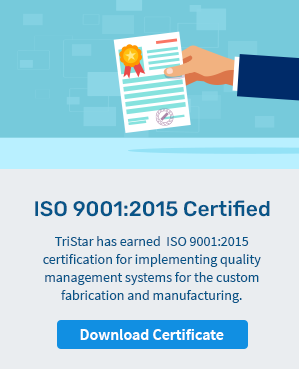Meldin® Grades Comparison | Chemical Compatibility
Use the Meldin® grades comparison chart to determine which material will work best for your application. Click on the linked grade name at the top of each column to read more about a specific material and let us know if you have any questions.
The chemical compatibility chart (in tab 2) outlines general chemical resistance for Meldin® 7000 series grades.
| Meldin® Grades | Material Name | 7001 | 7021 | 7022 | 7211 | 7003 |
| Color | Gold | Black | Black | Black | Black | |
| Characteristics | Key highlights | Thermal stability, high strength, dielectric insulator, minimal outgassing in vacuum, ductile, cryo to 600°F continuous. | Very low friction and best wear properties for seals and bearings, thrust washers, piston rings. Excellent strength at high temps. | Best temperature stability and lowest thermal expansion rate of all Meldin® grades. Excellent high temperature structural option for metals. | Excellent bearing grade up to 300°F, k factor drops above that and 7021 is better wearing option above 300°F. Very low friction. | Best for service in vacuum and in extreme dry conditions. Commonly used as seals, seats, bearings, in space applications. |
| Composition & Manufacturing Methods | Base Resin | Polyimide (PI) | ||||
| Fillers | Unfilled Base Resin | 15% Graphite | 40% Graphite | 15% Graphite, 10% PTFE | 15% Molybdenum Disulfide | |
| Shape Availability | Rod, sheet, finished parts Up to 37" rod, 12 x 12 sheets Tubes, Discs, Blocks |
|||||
| MFG Method DF | x | x | x | x | x | |
| MFG Method HCM | x | x | x | x | x | |
| MFG Method Isostatic Molding | x | x | x | x | x | |
| Mechanical | Tensile Strength (psi) | 12500 | 9500 | 8000 | 7500 | 9200 |
| Elongation (%) | 8.0 | 4.7 | 3.0 | 4.0 | 5.5 | |
| Flexural Strength (psi) | 15800 | 15800 | 13000 | 11800 | 13000 | |
| Flexural Modulus (psi x 105) | 4.6 | 5.3 | 7.7 | 5.0 | 4.6 | |
| Compressive Modulus (psi x 105) | 3.8 | 4.5 | 4.8 | 3.5 | 3.6 | |
| Thermal | Max Use Temp | 600°F* | 600°F* | 600°F* | 600°F* | 600°F* |
| Tg (Glass Transition Temp.) | Has no Tg** | Has no Tg** | Has no Tg** | Has no Tg** | Has no Tg** | |
| Thermal Conductivity (BTU in/hr ft2 °F) | 2.4 | 5.0 | - | 5.2 | - | |
| CTE – 73 to 500°F (in/in/°F) | 2.7 | 2.2 | 1.4 | 2.4 | - | |
| Electrical | Dielectric Strength (V/mil) | 580 | 280 | - | - | - |
| Surface Resistivity (Ohm-Sq) | 1015 - 1016 | 108 - 109 | - | - | - | |
| Other | Specific Gravity | 1.43 | 1.51 | 1.65 | 1.53 | 1.61 |
| Hardness (Rockwell E) | 40-55 | 25-40 | 5-20 | 1-15 | - | |
| Water absorption 24hr / 48hr (%) | 0.23 / 0.64 | 0.50 / 0.10 | - | - | - | |
* Intermittent exposure to 900ºF
** Meldin® 7000 has no softening point. TGA tests show it burns off less than 5% by weight up to temperatures of 1112ºF.
The list above is only a partial list of available Meldin® materials.
PV data may be exceeded based on specific application requirements. Ask to speak to a TriStar Application Engineer.
|
Chemical |
Meldin® 7001 |
Meldin® 7021 |
Meldin® 7022 |
Meldin® 7211 |
|---|---|---|---|---|
| Acetic Acid (10%) | C | C | C | C |
| M-Cresol | B* | B* | B* | B* |
| o-Dichlorobenzene | A | A | A | A |
| Diethyl Ether | A | A | A | A |
| Ethanol | A | A | A | A |
| Hydraulic Fluid, Polyphosphate Ester | A | A | A | A |
| Hydrochloric Acid (37% @RT) | B | B | B | B |
| Hydrochloric Acid (5%, 100C) | C | C | C | C |
| JP-4 Jet Fuel | A | A | A | A |
| Jet Engine Oils (MIL L78086, T2) | A | A | A | A |
| Mineral Oil | A | A | A | A |
| Nitric Acid (70%) | B-C | B-C | B-C | B-C |
| Nitrobenzene | B* | B* | B* | B* |
| Nitrogen Tetroxide | B | B | B | B |
| Perchloroethylene | A | A | A | A |
| Silicone Fluid | A | A | A | A |
| Sodium Hydroxide (5%) | C | C | C | C |
| Tricresyl Phosphate | B | B | B | B |
| Toluene | A | A | A | A |








